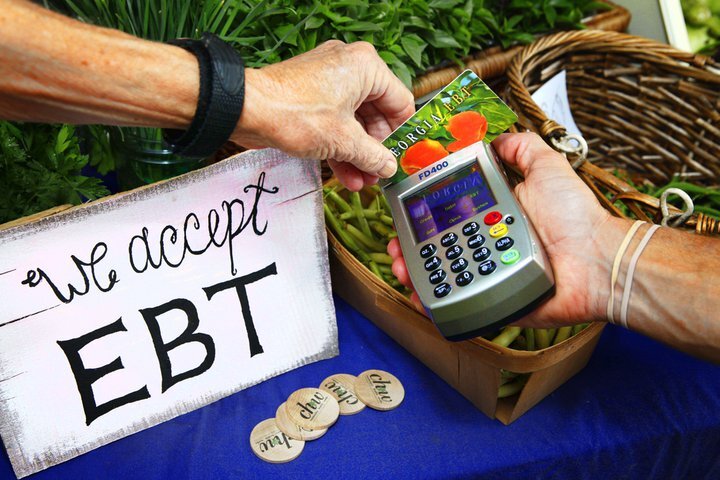Jennifer Owens, Senior Vice President of the Georgia Budget & Policy Institute is excited to see the program take hold in Georgia. "P-EBT is a unique opportunity that is being used throughout the county to get children access to healthy meals. This is a critical program, especially now as the recession takes hold," says Owens.
Owens volunteers at a local food bank and encounters families who are used to relying on school meals and who are now subsisting off half a carton of eggs for the week. “The need is dire, and that is why it is so important for community organizations to get the word out about this program,” she says.
Beginning the last week in July, any family who already receives SNAP benefits will have their benefits loaded automatically to their EBT card.
Families who are on free and reduced lunch but do not participate in the SNAP program must apply through DFCS at dfcs.georgia.gov/pandemic-electronic-benefit-transfer to receive their benefits. Families will be required to enter the student’s Georgia Testing ID (GTID), also known as the student ID number, when applying for benefits. This number can be found on their child's report card or obtained from their local school district. Once an application is submitted, the cards will arrive by mail within 3-4 weeks.
Officials are urging families to apply for these benefits as soon as possible, as the state is required to pay out these benefits until September 30. These benefits last 365 days from the time that they are issued.
Lauren Waits, Policy Advisor at the Atlanta Community Food Bank has been working to get the word out about the program. "Food banks have seen such a dramatic increase in need due to COVID. We are working hard to convey the urgency of applying for these benefits" Waits says. "The problem is real, and we hope that families provide their information so that they can claim this money as soon as possible."
It is important to note that in families whose children are in Community Eligibility Program (CEP) school systems--where all attending students receive meals—are automatically eligible to receive these benefits.
It's also important to note that these benefits are available to all students receiving free and reduced lunch, regardless of citizenship status. "Congress designed this program so that the use of P-EBT will never count against the public charge requirement or hinder anyone in their path to citizenship," says Waits.
Families receiving P-EBT benefits will be able to use these benefits wherever SNAP benefits are accepted, including select local farmers markets. “Providing families directly with SNAP benefits will give them the opportunity to go to farmers markets and stretch those dollars further while give them more diverse choices and nutritious offerings than a food pantry would typically provide,” Owens states.
When speaking to Suzanne Girdner, who leads the Georgia Food Oasis program, she emphasizes that P-EBT relief fills a deep void in pandemic support for families:
“This important because our families had very little support on addressing meal gaps and had to quickly come up with 10-20 additional meals a week with school closures during March-May; GA is finally recognizing and honoring these families’ challenges and provided the belated or back-dated support they needed, frankly, in Spring. This comes at a time that families undoubtedly continue to need help with school start delays and this will help them fill critical meal gaps they continue to face.”
Girdner adds, “For us this is also a great way for families to get more nutrient dense foods via local farmers markets, produce boxes that accept and/or double SNAP which is exactly what young developing minds and bodies need to thrive.”














